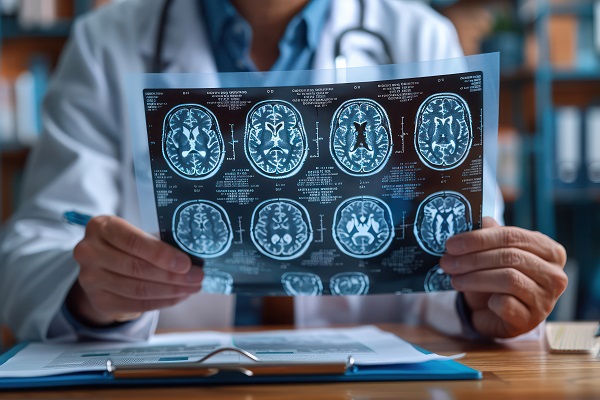
In the aftermath of a car accident, sustaining head injuries is not uncommon, yet the repercussions can vary significantly. From concussions to more severe conditions like diffuse axonal injury (DAI), traumatic brain injuries span a spectrum of severity, with symptoms ranging from mild to life-threatening.
It's crucial to seek medical treatment promptly following a car accident, as early diagnosis of head injuries greatly improves recovery outcomes. Moreover, understanding your legal rights and seeking help from an experienced Maine car accident lawyer can ensure you receive the support and compensation you deserve for your injuries.
Head and brain injuries from car accidents
Head and brain injuries resulting from car accidents can manifest in various forms due to the complex mechanics of collisions.
For instance, in a rear-end accident, the sudden impact propels the occupants' bodies forward while their heads may snap backward, leading to a traumatic brain injury. Conversely, in a head-on collision, occupants experience a direct and forceful impact to the front of the vehicle, causing rapid deceleration and potentially leading to head trauma as they are thrown forward.
The impact of these collisions can result in a multitude of traumatic brain injuries (TBIs), including but not limited to:
- Concussions: Concussions, often the result of sudden jolts or impacts, are often characterized by temporary loss of consciousness, confusion, and cognitive symptoms such as headaches and memory problems.
- Contusions (bruises on the brain): Contusions occur when the brain impacts the skull, leading to bruising or bleeding within the brain tissue. Depending on their severity, contusions can result in neurological deficits and cognitive impairments.
- Skull fractures: Skull fractures involve a break in the bones surrounding the brain. They vary in severity from minor hairline fractures to more severe fractures that penetrate the skull and pose a risk of brain injury or intracranial hemorrhage.
- Intracranial hemorrhages (ICH): Intracranial hemorrhages occur when blood vessels within the brain rupture or leak, leading to bleeding inside the skull. These hemorrhages can result in increased pressure on the brain, potentially causing neurological symptoms and life-threatening complications.
- Diffuse axonal injuries (DAI): Diffuse axonal injuries occur when the brain rapidly shifts or rotates inside the skull, causing widespread damage to nerve fibers (axons) throughout the brain. This type of injury can result in coma, cognitive impairments, and long-term neurological deficits.
- Coup-Contrecoup injuries: Coup-Contrecoup injuries occur when the brain is injured at two opposite points due to the initial impact and the subsequent rebound inside the skull. This can result in damage to multiple areas of the brain and complex neurological symptoms.
Symptoms and warning signs of a TBI
For a mild TBI, symptoms often include:
- Headaches.
- Mild confusion.
- Nausea.
- Temporary ringing in the ears.
- Dizziness.
- Blurred vision.
- Irritability.
- Trouble concentrating.
- Disrupted sleep patterns.
- Fatigue.
For a more moderate to severe TBI, symptoms may include:
- Persistent or worsening headaches.
- Loss of consciousness or coma.
- Locked-in syndrome.
- Slurred speech.
- Unrelenting nausea or vomiting.
- Seizures.
- Clear fluid leakage from the ears or nose.
- Short-term memory loss.
- Behavioral changes.
- Dilated pupils.
- Open head wounds.
Don't ignore your symptoms after a crash
Ignoring symptoms following a car accident can have serious consequences, especially when it comes to head injuries. If you experience any symptoms, such as persistent headaches, dizziness, confusion, or memory problems after an accident, it's crucial not to dismiss them. Seeking prompt medical attention is essential for the proper diagnosis and treatment of traumatic brain injuries.
To diagnose a TBI, medical professionals may conduct a series of tests, including neurological exams, imaging scans such as CT scans or MRIs, and cognitive assessments. Early detection of a TBI is critical as it allows for timely intervention to prevent further damage and improve outcomes.
Treatment for TBIs varies depending on the severity of the injury but may include rest, medication for pain and symptom management, rehabilitation therapies such as physical therapy or speech therapy, and, in some cases, surgery to relieve pressure on the brain. Following medical advice and attending all recommended appointments is essential to facilitate recovery and minimize long-term complications.
Remember, your health and well-being should be your priority after any car accident. Don't ignore any symptoms you experience after a crash, no matter how minor they may seem. Seek medical attention promptly and prioritize your recovery.



